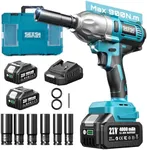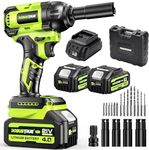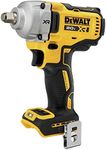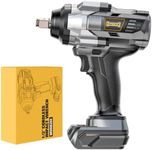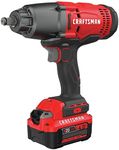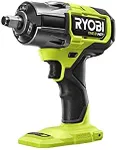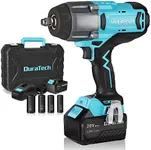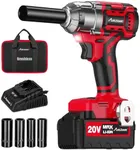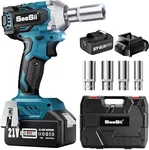Buying Guide for the Best Impact Gun For Cars
Choosing the right impact gun for cars can make a significant difference in your automotive work. An impact gun, also known as an impact wrench, is a powerful tool used to loosen and tighten bolts and nuts with high torque. When selecting an impact gun, it's important to consider several key specifications to ensure you get the best fit for your needs. Understanding these specs will help you make an informed decision and choose a tool that will serve you well in various automotive tasks.TorqueTorque is the measure of the twisting force that the impact gun can apply. This spec is crucial because it determines the tool's ability to loosen or tighten bolts and nuts. Torque is usually measured in foot-pounds (ft-lbs) or Newton-meters (Nm). For light-duty tasks, such as working on small cars, a torque rating of around 150-300 ft-lbs may be sufficient. For more demanding tasks, like working on trucks or heavy machinery, you might need an impact gun with 400-1000 ft-lbs or more. Consider the type of vehicles you'll be working on to choose the right torque level.
Drive SizeThe drive size refers to the diameter of the square drive that connects the impact gun to the socket. Common drive sizes are 1/4-inch, 3/8-inch, 1/2-inch, and 3/4-inch. The drive size you need depends on the size of the bolts and nuts you'll be working with. For general automotive work, a 1/2-inch drive is the most versatile and widely used. If you work on smaller components, a 3/8-inch drive might be more appropriate, while a 3/4-inch drive is suitable for heavy-duty applications.
Power SourceImpact guns can be powered by electricity (corded or cordless), air (pneumatic), or hydraulics. Corded electric impact guns offer consistent power but require an outlet, while cordless models provide mobility and convenience with battery power. Pneumatic impact guns are powered by compressed air and are commonly used in professional settings for their high power and reliability. Hydraulic impact guns are less common and typically used in specialized applications. Consider where you'll be using the tool and whether you need portability or consistent power to choose the right power source.
WeightThe weight of the impact gun can affect your comfort and ease of use, especially during extended periods of work. Lighter models are easier to handle and reduce fatigue, making them ideal for frequent use or overhead tasks. Heavier models may offer more power but can be cumbersome and tiring to use for long durations. Balance the need for power with your ability to comfortably handle the tool to find the right weight for your needs.
Speed SettingsSpeed settings refer to the number of revolutions per minute (RPM) the impact gun can achieve. Variable speed settings allow you to adjust the tool's speed based on the task at hand, providing greater control and precision. Lower speeds are useful for delicate tasks, while higher speeds are better for quickly loosening or tightening bolts. If you need versatility in your work, look for an impact gun with multiple speed settings.
Build QualityBuild quality encompasses the materials and construction of the impact gun. A well-built tool will be durable, reliable, and able to withstand the rigors of automotive work. Look for impact guns made from high-quality materials like metal and reinforced plastics. Check for features like ergonomic handles, protective casing, and robust internal components. Investing in a tool with good build quality ensures longevity and consistent performance.
